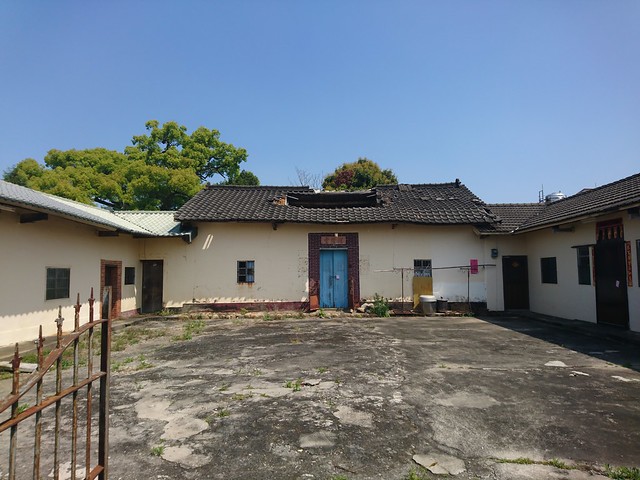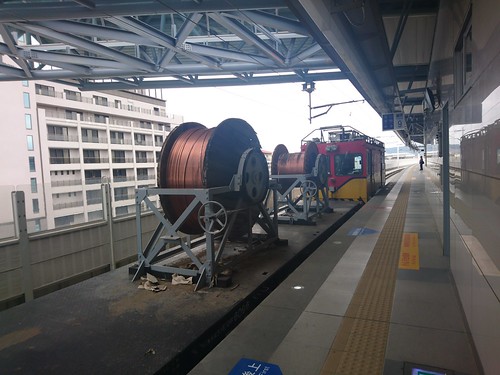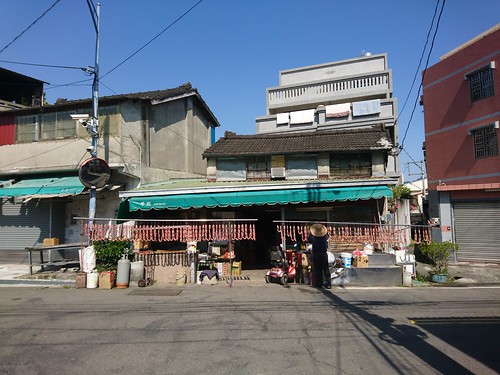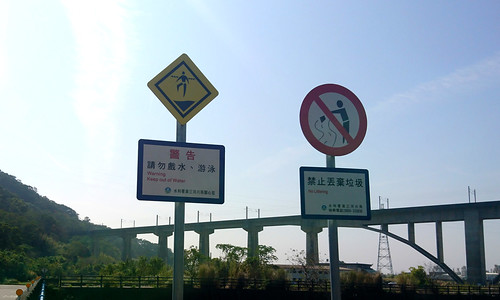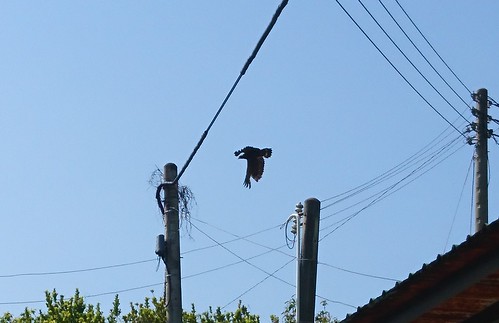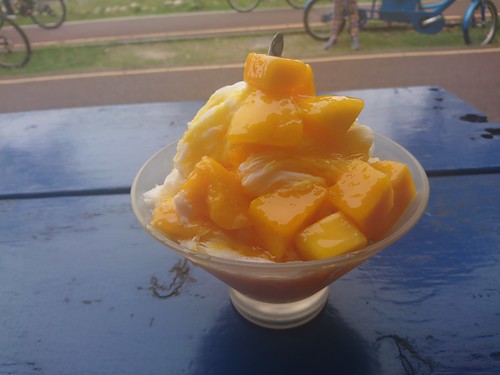The sign on the left sign cries out for captioning.
Warning... long post ahead.
Yesterday President Trump of the US signed the Taiwan Travel Act. The act is simply a "sense of Congress" resolution and does not require anything; the President already has the power to order officials to Taiwan. But it is an important symbolic move (see Shannon Tiezzi's sturdy backgrounder at
The Diplomat).
Of course, the reporting was appallingly pro-China. Rupert Hammond-Chambers of the US-Taiwan Business Council neatly encapsulated the media's service to Beijing:
R J Hammond-Chambers@RJHCUSTBC
I have yet to read any US coverage that explains why strong, high-level US-TW engagement is inherently in the interests of the US. Only a steady stream of why the PRC is upset. Note to America’s media - US interests should not be dictated by China!
Hammond-Chambers instanced this piece
from Reuters. Note that while it expends many pixels explaining that China is upset and permitting Chinese officials to speak without any challenge or contrary information, it says nothing about why US officials think this might be a good idea for the US. The US, indeed, is not given any voice whatsoever. Reuters has appeared many times on this blog for its reporting on China, but it is hardly alone.
But
VOA -- pass the whiskey and comfort food this is the VOICE of America -- reports in exactly the same way. First paragraph:
U.S. President Donald Trump has signed legislation that encourages U.S. officials to travel to Taiwan to meet their counterparts and vice versa, a move that has angered China.
The piece contains no information on why the US did this. But the key fact that it angers China (ZOMG TENSHUNZ PLZ CLICK MANY TIMEZ) is reported and Chinese officials speak with no challenge or contrary information, and no words from US officials about why they might be doing this. Yes, in Voice of America, America has no voice. In fine reader-slit-your-belly fashion the "report" even uses the word "reunification".
The
AP piece is better. It gives context but the bulk of the report is still devoted to China and the Chinese reaction. Chinese officials are quoted twice (no US officials are quoted but at least AP notes Trump wants to get tough on China). As usual, nothing is presented that might show why China's claims are nonsense -- no argument is made for the US side, and the reader is not alerted to the key fact that China's policy is to displace tensions in the US-China relationship onto the US-Taiwan relationship, to weaken the latter and present Taiwan as the cause of tensions. Tsai is presented as refusing to endorse China's claim to Taiwan, but the US position that Taiwan is not part of China is omitted.
Who gave American officials a voice?
NHK of Japan, which not only gives a US context but also offers words from a White House official.
Sputnik even quotes the actual WH press release.
This media response is driven by two issues. One is the vast contempt the media has for Trump, so anything Trump does is deprecated.
The second issue is the interpretive framework that establishment observers use to understand China's place in East Asia geopolitics and which journalists reflect. In this framework the goal is great power "stability" under which China participates in international economic and political systems as a full compliant partner. This framework denies that China is interested in subverting, overthrowing, converting, or destroying the international order and views Taiwan as a provocative irritant that upsets the smooth ordering of international relations -- tensions are due to the actions of Taiwan, not China.
Its proponents thus argue that if we only understood China better and addressed its concerns, it would respond positively. These worthies claim that opponents don't understand poor put upon China and, when necessary, that those of us who constantly point out that this framework is both useless and pro-China are paranoid or are just plain racist.
This difference in underlying interpretive frameworks is why the China Explainer crowd gets so worked up about Taiwan-US contacts -- the classic example being the Trump-Tsai phone call (
my post on that is now the #2 most-viewed post on this blog) -- and why those of us with Taiwan experience, who do not use this pro-China framework when interpreting Chinese actions, shrug and
ask for another margarita because nothing is going to happen, and alcohol makes the conniption fits of the China Explainer crowd even more enjoyable.
But more seriously, which media outlet reported that nothing happened as a result of the Phone Call? That would be none. Failures of the Establishment Framework are passed over in silence, and its links to the power, status, and wealth its proponents derive from their China connections are never mentioned.
However, establishment journalism well understands how to exploit this framework to sell clicks. For example, earlier this month AP shouted:
Get yur clickbait here! The international media sells tensions, and when Beijing-Taipei tensions are normal and unremarkable, they need sexing up.
Thus, this
recent AP piece on the scammer deportations ruthlessly exploits the interpretive framework under which the pro-democracy party in Taiwan is the cause of tensions: "Phone fraud schemes worsen Beijing-Taiwan tensions". It's important to get in those words "worsening... tensions" to maintain the proper level of clickbait appeal. Imagine if the headline read the truth: "Phone fraud deportations reflect fallout from the currently normal level of Beijing-induced tensions."
Well, people might read that because it is so unusual....
As so often in the international media, AP omits the key fact that enables the reader to understand the issue at hand (thus length of explanation is longer than original omission, sorry):
In 2014, Philippine police nabbed 44 Taiwanese who were suspected of gaining access to bank accounts by telling victims they had been used by money launderers or terrorists. Other cases have involved fraudsters posing as tax collectors or other officials.
As of September, the Taiwan Criminal Investigation Bureau said it was tracking 778 people and 58 groups with potential fraud links.
Shortly before Tsai took office, Beijing began demanding that governments of countries like Kenya, Malaysia and Spain that arrest phone and computer fraud suspects send them to China, where they face almost certain conviction and up to life in prison.
Note that gratuitous comment about Tsai. It's really a lovely work of plausible deniability -- AP could say "well, we were just fixing the timing, you know. We weren't linking the deportations to Tsai, really." As I noted
in the Diplomat on these cases:
In December of 2014, the Kenyan police arrested 77 persons (45 Taiwanese, 31 Chinese, 1 Thai; 13 of the the 77 were females between 19 and 25) following a fire that revealed their equipment. They were tried in several different groups. One of group of 10, including the batch of eight Taiwanese, was convicted of being in Kenya illegally and did a year in prison, which ended in March 2016. They were all eventually tried on three charges of telecoms equipment violations and business violations. All were acquitted of the latter. As the Kenya government later explained, the men were deported to China because they had entered the country illegally, and Guangzhou was their last port of embarkation.
China became involved immediately. In December 2014, a police team arrived from China to help investigate the case, and in January 2015, the Chinese government formally requested that Kenya send the suspects to China. China wanted to try the suspects on fraud charges, while the Kenya government tried them only on telecoms equipment and business violations. This withholding of the fraud charges suggests that the two governments agreed on how to handle the case over a year before Tsai Ing-wen was elected. It is thus highly unlikely that the Chinese government was planning to signal the incoming DPP administration on cross-strait sovereignty issues.
The construction that AP presents, "shortly before Tsai took office" appears to link the "new" policy to Tsai without actually saying so -- that pro-democracy party, so unstable you know, wink wink. Cute.
Truth: the Kenya suspects were arrested in Dec of 2014, over a year before Tsai was elected and a year and a half before she "took office". The Chinese police showed up immediately and informed the Kenya police they wanted the suspects (
Kenya paper Jan 2015 report)(
my post on this). The formal request was made in Jan of 2015. The new policy was probably determined in the late summer or fall of 2014, nearly two years before Tsai "took office" and when we had a KMT president. Why? Beijing was peeved that scammers kept being sent back to Taiwan and being released. Again from the Diplomat:
Indeed, a legislator for the current ruling party [KMT] was asked by a reporter whether the deportations were a message to Tsai Ing-wen, but denied that interpretation: “We have to face reality as well,” he admitted. “We had given light sentences to the fraudsters after they were extradited back to Taiwan, which had resulted in certain consequences.”
The deportations aren't linked to Tsai at all.
Linking them to her in any way is completely misleading (but neatly exploits the interpretive framework that the DPP causes tensions and sovereignty issues drive cross-strait relations)
. The "new" scammer policy is linked to the policies of the previous administration of KMT President Ma Ying-jeou (once again, the double standard: the KMT can never cause tensions -- even though the cause of the policy shift was, indisputably, a KMT administration policy). The AP presentation even makes Ma Ying-jeou vanish entirely. Mysteriously, Taiwan was without a President shortly before Tsai took office...
The Taiwan government -- Ministry of Justice and Mainland Affairs Council both! -- also conceded that Beijing has the legal right to ask for the criminals because their victims were Chinese (
Taipei Times). Hence this piece of "reporting" from AP is another misleading tension-construction....
Taiwan officials protested when a court in Spain agreed in December to send 121 Taiwanese fraud suspects to China. Beijing contends that since victims of the crimes are Chinese, the suspects should be tried in China.
Note that it places the two contentions on equal terms as if there were no resolution between the two sides. ZOMG the TENSHUNZ (PLZ CLICK MOAR)! Let's rewrite it so it reflects truth:
To impress domestic audiences, Taiwan officials protested when a court in Spain agreed in December to send 121 Taiwanese fraud suspects to China. However, the Ministry of Justice publicly conceded in 2016 that Beijing has the right under international rules to try the suspects since the victims of the crimes are Chinese.
But then such a construction is tension-free because it concedes that in this dispute China is right. But to understand that, you'd have to understand why China is requesting them,
which AP completely omits.
The AP piece does, laudably, assign blame for the breaking off of communication to Beijing -- the international media is getting better at that.
Reality: the cause of tension between Taiwan and China is Beijing's desire to annex Taiwan.
But what media ever straightforwardly says that?
_______________________
[Taiwan] Don't miss the comments below! And check out my blog and its sidebars for events, links to previous posts and picture posts, and scores of links to other Taiwan blogs and forums!

